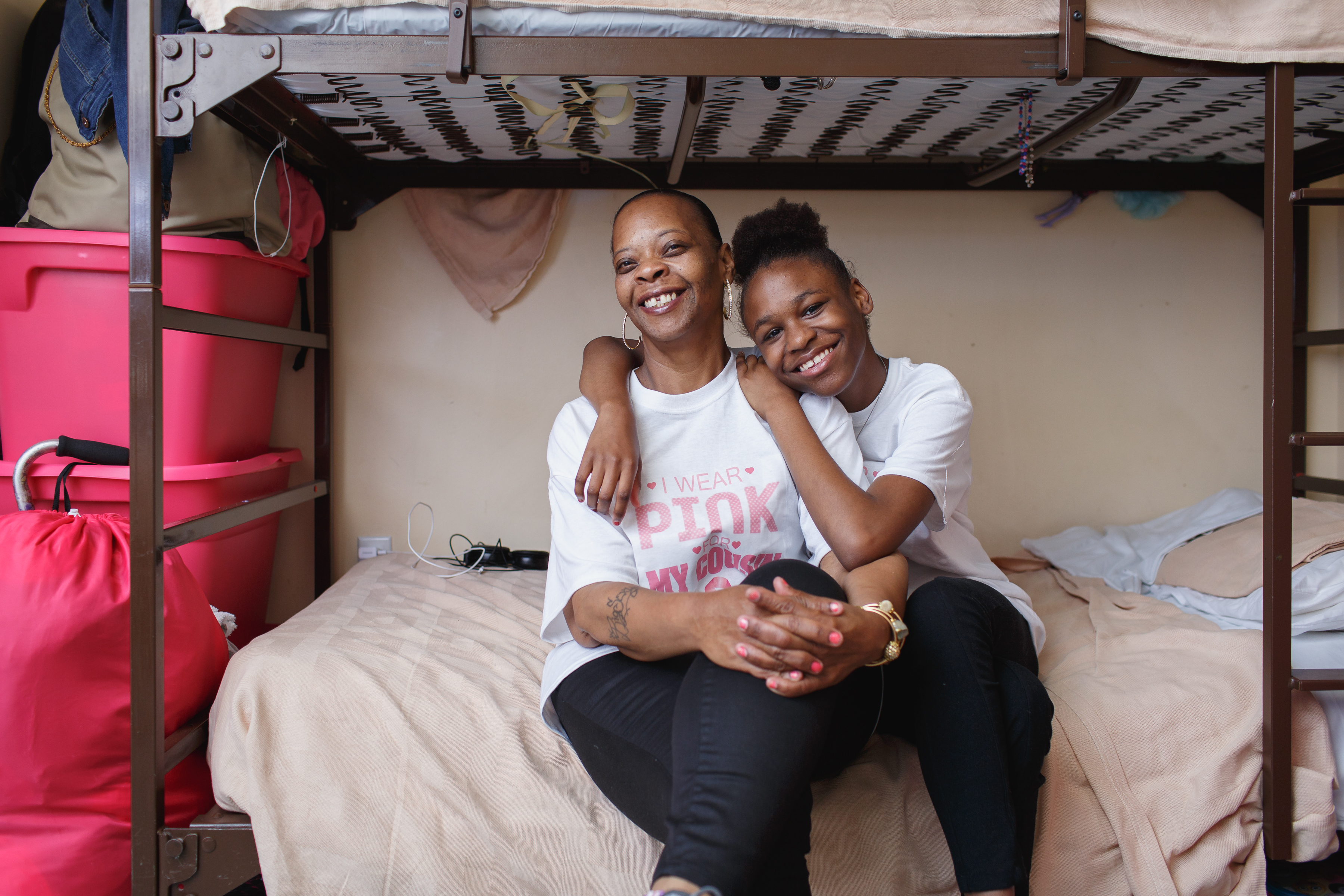Emergency shelter should be more than a collection of beds. At St. Barnabas Mission, families are provided a network of care.
Nutritious family meals are prepared in an industrial kitchen and served in
a community dining space. Healthful activities like yoga and Zumba are led by certified instructors. Parents are engaged in group workshops offered in conjunction with the Department of Human Services’ Parenting Collaborative.
Health screenings and referrals are conducted by a full-time nurse, and
physicals are provided thanks to the Children’s Hospital of Philadelphia
and the Philadelphia College of Osteopathic Medicine. St. Barnabas Mission provides a safe place to sleep, and as you can see, during the daytime, additional care is provided to help residents address different
conditions besides, or because of, their episodic homelessness.
Nearly half of the people who enter St. Barnabas Mission report that they struggle with mental health issues—though the number is suspected to be higher. To build upon our commitment to health, last summer, Episcopal Community Services began transforming a portion of St. Barnabas Mission into a state-of -the-art health and wellness clinic.
The clinic is made possible in partnership with Progressions Behavioral Health—a partnership the first of its kind between a shelter and mental health provider in the City of Philadelphia. Program participants outside of
St. Barnabas will be offered the same treatment in the year ahead.
“Our commitment to health reaches into every program because wellness is core to stability,” said Pamela D. Egleston, MSW, LSW, director of health and wellness programming. Chronic stress and untreated mental health issues are as debilitating as broken bones and take even longer to heal.
Research shows that executive-functioning skills are compromised
when the experience of everyday life is spent in survival mode. Living in
poverty—including the symptoms of poverty like homelessness—can hinder a person’s working memory, mental flexibility, and impulse control. Luckily, there is a way to unlearn these behaviors and rebuild. At the clinic, a psychiatrist and counselors will provide mental health treatment for
families. Access to individual therapy and group workshops will help residents of St. Barnabas deal with trauma, anxiety, and depression—the feelings of crisis that make it hard to move forward.
For going the extra mile, past residents have referred to the shelter as their
place of love because of the sense of community it nurtures. With much anticipation, soon participants will be able to begin their mental health
healing journeys, too, onsite at St. Barnabas Mission, their temporary home.

